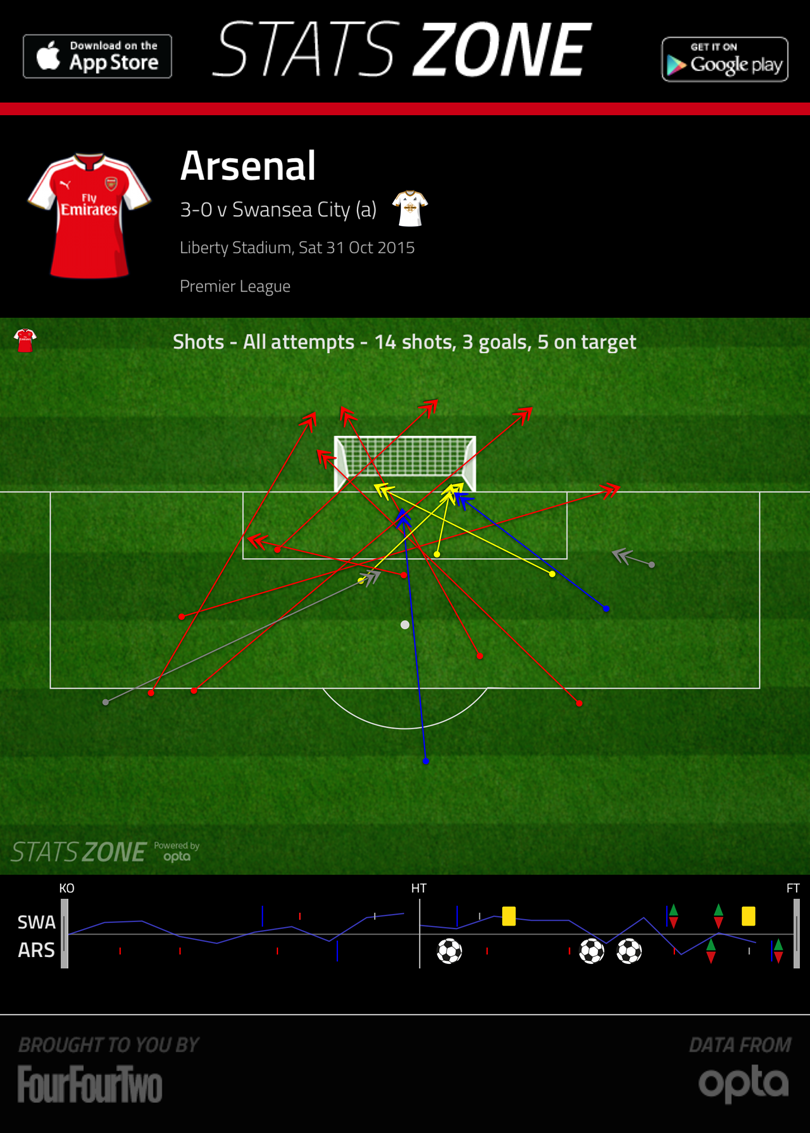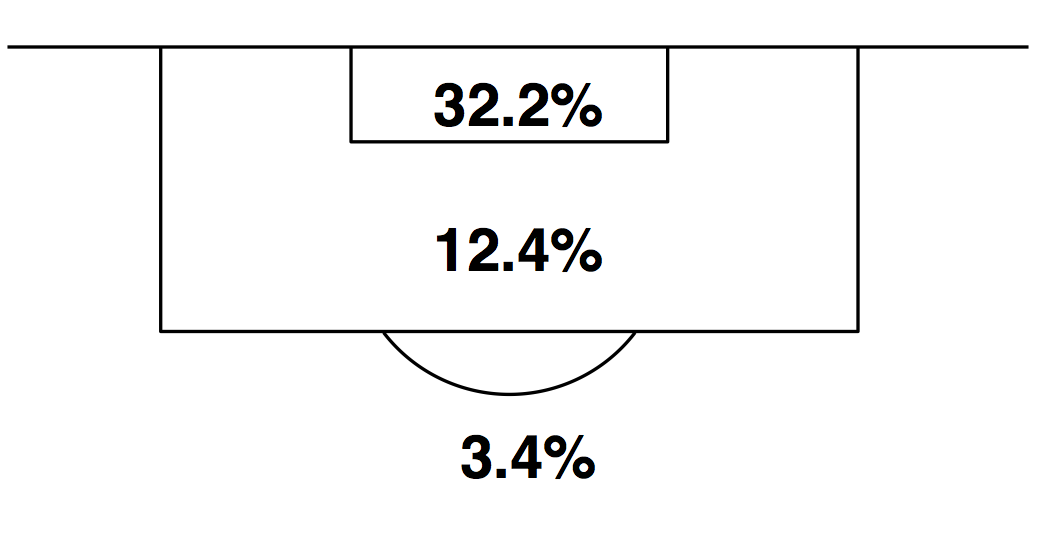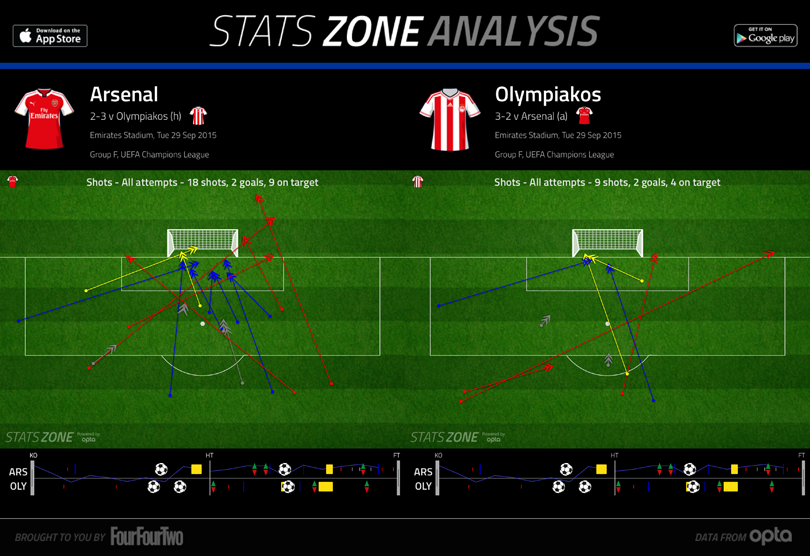Revealed: Why Wenger won't buy a striker - Arsenal have the best attack in the league
Maths professor David Sumpter reveals the data that Arsene Wenger sees: that Arsenal have the most 'expected goals' this season and hence don't need a new striker...

The best features, fun and footballing quizzes, straight to your inbox every week.
You are now subscribed
Your newsletter sign-up was successful
Want to add more newsletters?

Five times a week
FourFourTwo Daily
Fantastic football content straight to your inbox! From the latest transfer news, quizzes, videos, features and interviews with the biggest names in the game, plus lots more.

Once a week
...And it’s LIVE!
Sign up to our FREE live football newsletter, tracking all of the biggest games available to watch on the device of your choice. Never miss a kick-off!
Join the club
Get full access to premium articles, exclusive features and a growing list of member rewards.
Arsenal are on a high, even after being mullered in Munich on Wednesday. They demolished Swansea away at the weekend for their fifth straight Premier League win, after beating Bayern in the Champions League at the Emirates Stadium. And they are creating lots and lots of opportunities.
Below is a Stats Zone plot of Arsenal’s shots during their recent win at the Liberty Stadium: yellow arrows are goals, blue arrows are shots on target, red arrows are misses and grey arrows are shots blocked.

Arsenal’s run of success has come after a sluggish start to the season. In September, some commentators were claiming that Santi Cazorla and Mesut Ozil lack the power to succeed. There was a focus on Arsene Wenger’s team’s lacking determination. After losing at home to Olympiakos in the Champions League, striker Alfred Finnbogason said that “Arsenal don’t want to defend”. Things appeared pretty bleak.
But while others doubted, the community of online statistical football bloggers had faith in the Gunners. This is because Arsenal can boast more 'expected goals' than any other team in the Premier League.

What are expected goals? Well, they obviously aren’t the same as real goals. Instead, expected goals is a way of calculating how many chances a team has had during a match, and how good those chances were.
To calculate expected goals we first find out how many shots a team has produced and from where. Over a season we can calculate how many goals have been scored from different places on the pitch.
For example, below shows the percentage probability that a shot is scored inside the six-yard box, inside the penalty area (excluding six-yard box) and from outside the penalty area.
The best features, fun and footballing quizzes, straight to your inbox every week.
A shot from outside the box is less likely (3.4% probability) to go in than one made inside the penalty area (12.4% probability), which in turn is less likely to go in than a shot in the six-yard box (33.4% probability).

Against Swansea, Arsenal registered five shots from outside the box, eight inside the box and one inside the six-yard box. On an ‘average’ day of football this would produce 5×0.034 + 8×0.124 + 1×0.32.2=1.48 goals.
So in fact, Arsenal were a little lucky scoring three times in South Wales, but it was certainly a fair result. Lets now look at Arsenal (left) vs Olympiakos (right) in the Champions League.

Again, Arsenal record a lot of shots from inside the box, this time 10, as well as eight from outside the box. This is 1.51 expected goals and the two Arsenal scored were well deserved. Olympiakos, on the other hand, had one very good chance inside the six-yard box that went in. Otherwise, they were confined to long shots, giving them an expected goals of 0.77. With less than one expected goal, they were lucky to get three.
I have presented a simplified version of the Expected Goals model here. Michael Caley has created a more thorough model than mine. He accounts for the distance and angle from goal at the point of shooting, along with other details such as whether the shot was a header or a kick. Even accounting for these details, Arsenal remain the top rated team in the Premier League in terms of expected goal creation, just slightly ahead of Manchester City. They topped these tables long before the recent series of victories. Despite making a slower start than City, Arsenal have been on form since the beginning of the season.
There does remain one statistical question mark about Arsenal. The problem is that they have topped charts relating to passing rates and expected goals in previous seasons, but it is 11 years since they topped the Premier League table at the end of the campaign. They play a style of football that gives promising numbers, but it isn’t expected goals that win titles. It is real goals, scored in big games, that count.
READ ON Soccermatics: How maths shows that Chelsea are too dependent on Eden Hazard
 Join The Club
Join The Club










